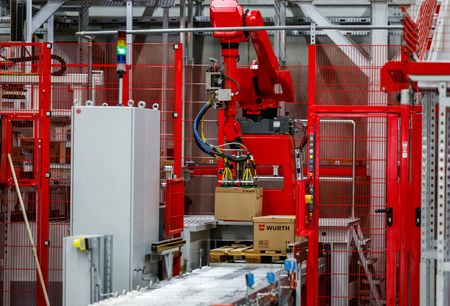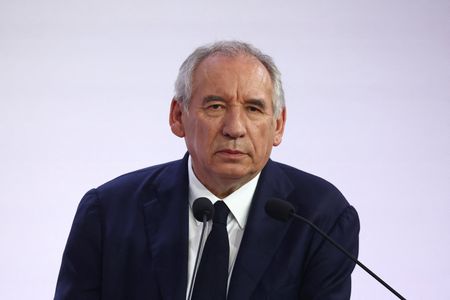By Christoph Steitz and Rene Wagner
FRANKFURT/BERLIN (Reuters) – Far-reaching tariffs announced by the U.S. will deal a major blow to German industry, a major exporter to the world’s top economy, sector leaders said, with one institute putting the expected damage at 200 billion euros ($222 billion).
Covering everything from cars and auto parts to pharmaceuticals and machinery, the U.S. was Germany’s biggest trading partner in 2024, according to the statistics office, with 253 billion euros worth of goods exchanged between them.
“To be very honest with you, we will feel it,” Dirk Jandura, president of Germany’s BGA association representing importers and exporters. “We will have to translate the tariffs into price increases, and in many cases that means a drop in sales.”
U.S. President Donald Trump announced sweeping duties on most global trading partners, including a 20% tariff on products from the European Union, and there is a separate 25% tariff for car imports.
“The announced tariffs are an unprecedented attack on the international world trade system, free trade and global supply chains,” said Wolfgang Niedermark, executive board member of Germany’s main industry association BDI.
According to Germany’s IW research institute, Germany’s economy, Europe’s largest, would be dealt a 200 billion euro blow as a result of the tariffs during Trump’s four-year term.
The move marks the rejection of “the rules-based global trade order – and thus turning away from the basis for global value creation and corresponding growth and prosperity in many regions of the world,” said Hildegard Mueller, president of the German auto industry association VDA.
“This is not America first, this is America alone,” she said, adding the blow from the tariffs would be felt globally and cost jobs.
($1 = 0.9020 euros)
(Reporting by Christoph Steitz and Rene Wagner, editing by Tom Hogue, Thomas Seythal and Ed Osmond)











